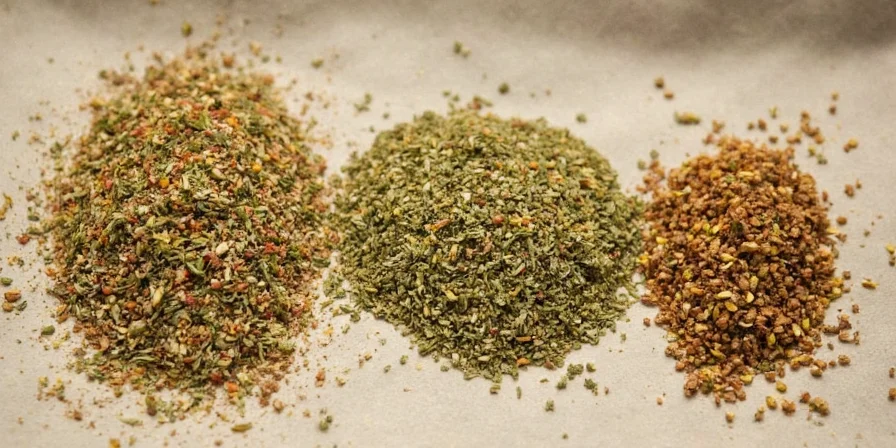Herb Seasoning: The Heart of Flavorful Cooking
Herb seasoning is a magical component of cooking that transforms ordinary ingredients into extraordinary dishes. These natural flavor enhancers not only elevate the taste of foods but also offer a myriad of health benefits. In this blog post, we'll explore the world of herb seasonings, their types, uses, and how to make your own blends.
What Are Herb Seasonings?
Herb seasonings are mixtures or individual forms of dried or fresh herbs that are used to enhance the flavor of dishes. They can come in various forms, including dried leaves, crushed herbs, or even as part of a blend that may include spices. Unlike spices, which typically come from seeds, roots, or bark, herbs are usually derived from the green parts of plants.
Types of Herb Seasonings
- Dried Herbs: These are herbs that have been dehydrated to preserve their flavor. Common dried herbs include oregano, basil, and thyme.
- Fresh Herbs: Fresh herbs are used directly in cooking and can add a vibrant flavor to dishes. Examples include parsley, cilantro, and dill.
- Herb Blends: These are combinations of various herbs, sometimes mixed with spices. Popular blends include Italian seasoning, Herbes de Provence, and za'atar.
Popular Herb Seasonings
| Herb | Flavor Profile | Common Uses |
|---|---|---|
| Basil | Sweet, slightly peppery | Italian dishes, salads, sauces |
| Thyme | Earthy, minty | Soups, stews, roasted vegetables |
| Oregano | Pungent, warm | Pizza, pasta, Mediterranean dishes |
| Parsley | Fresh, slightly peppery | Garnish, salads, sauces |
| Cilantro | Citrusy, fresh | Mexican dishes, salsas, salads |
Health Benefits of Herb Seasonings
In addition to enhancing flavor, many herbs come with impressive health benefits:
- Anti-Inflammatory Properties: Herbs like turmeric and ginger are known for their anti-inflammatory effects.
- Rich in Antioxidants: Many herbs, such as oregano and thyme, are packed with antioxidants that help combat free radicals in the body.
- Digestive Aid: Herbs like peppermint and dill can assist in digestion and relieve gastrointestinal discomfort.
- Rich in Vitamins: Fresh herbs are often rich in vitamins A, C, and K, contributing to overall health.
How to Use Herb Seasonings in Cooking
Incorporating herb seasonings into your cooking is simple. Here are some tips:
- Fresh vs. Dried: Use fresh herbs towards the end of cooking to retain their flavor, while dried herbs can be added earlier to release their oils.
- Balance Flavors: Consider the overall flavor profile of your dish. Pair stronger herbs like rosemary with hearty meats, and lighter herbs like basil with fresh vegetables.
- Experiment: Don’t hesitate to mix herbs. Creating your own blends can lead to unique flavor combinations!
Making Your Own Herb Seasoning Blends
Creating your own herb seasoning blends is an enjoyable and rewarding process. Here are two popular blends you can easily make at home:
Italian Seasoning Blend
Ingredients:
- 2 tablespoons dried basil
- 2 tablespoons dried oregano
- 1 tablespoon dried thyme
- 1 tablespoon dried rosemary
- 1 teaspoon garlic powder
- 1 teaspoon onion powder
Instructions:
1. Combine all ingredients in a bowl.
2. Mix well and store in an airtight container.
Herbes de Provence
Ingredients:
- 2 tablespoons dried thyme
- 2 tablespoons dried basil
- 2 tablespoons dried marjoram
- 1 tablespoon dried rosemary
- 1 tablespoon dried lavender (optional)
Instructions:
1. Mix all ingredients together.
2. Store in an airtight jar, away from light and heat.
Storage Tips for Herbs
To maintain the potency of your herb seasonings, proper storage is essential:
- Airtight Containers: Store herbs in glass or plastic containers with tight-fitting lids.
- Cool, Dark Places: Keep herbs away from heat and light, which can degrade their flavor.
- Labeling: Always label your containers with the herb name and date of preparation.
Conclusion
Herb seasonings are a fundamental aspect of cooking that can greatly enhance the flavor of your dishes while also providing health benefits. By understanding the different types of herbs, their uses, and how to create your own blends, you can elevate your culinary skills to new heights. Whether you’re a novice cook or a seasoned chef, the world of herb seasonings offers endless possibilities for flavor exploration.

Ready to spice up your cooking? Start experimenting with herb seasonings today, and discover the difference they can make in your meals!










 浙公网安备
33010002000092号
浙公网安备
33010002000092号 浙B2-20120091-4
浙B2-20120091-4